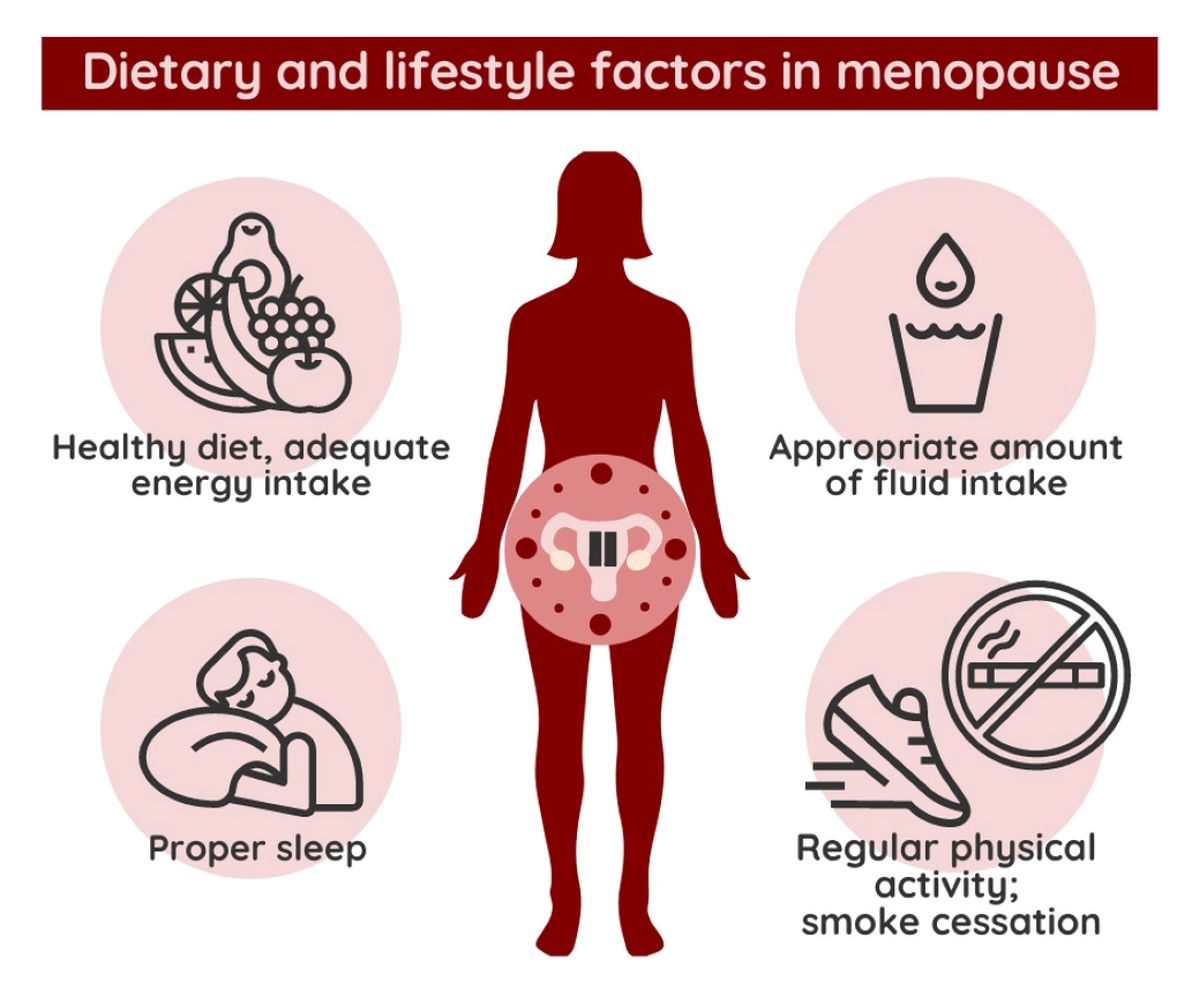
Menopause marks a significant phase in a woman's life, signaling the end of her menstrual cycles. Often surrounded by myths and misconceptions, understanding this natural process is crucial for both women experiencing it and society at large. Menopause is not merely a biological event but intertwines with psychological, social, and health aspects, affecting millions worldwide. This blog post aims to shed light on 50 fascinating facts about menopause, offering insights into its symptoms, treatments, and the diverse ways it impacts women's lives. From debunking common myths to highlighting the importance of support and care, we'll navigate through essential information that empowers women and enriches our understanding of this significant life stage. Whether you're approaching menopause, going through it, or simply curious, these facts promise to enlighten and inform.
Understanding Menopause
Menopause marks a significant transition in a woman's life. It signals the end of menstrual cycles and fertility. This natural biological process usually occurs in women in their late 40s or early 50s. Here are some fascinating facts about menopause.
- Menopause officially begins 12 months after a woman's last menstrual period.
- The average age for menopause in the United States is 51.
- Perimenopause, the transition phase leading to menopause, can last anywhere from a few months to over a decade.
- Symptoms of perimenopause can start as early as a woman's mid-30s.
- Common symptoms include hot flashes, night sweats, and mood swings.
Physical Changes During Menopause
Menopause brings about various physical changes. These changes can affect different parts of the body and vary from woman to woman.
- Hot flashes are the most common symptom, affecting up to 75% of women.
- Night sweats can disrupt sleep and lead to fatigue.
- Vaginal dryness is another common symptom, often causing discomfort during intercourse.
- Weight gain, particularly around the abdomen, is frequent during menopause.
- Hair thinning and loss can occur due to hormonal changes.
Emotional and Mental Health
Menopause doesn't just affect the body; it also impacts emotional and mental well-being. Understanding these changes can help women navigate this phase more smoothly.
- Mood swings are common and can range from irritability to depression.
- Anxiety levels may increase during menopause.
- Memory issues, often referred to as "brain fog," can occur.
- Sleep disturbances are frequent, contributing to mood changes.
- Some women experience a decrease in libido.
Hormonal Changes
Hormones play a crucial role in menopause. The decline in estrogen and progesterone levels leads to many of the symptoms experienced.
- Estrogen levels drop significantly during menopause.
- Progesterone, another key hormone, also decreases.
- Testosterone levels decline, though more gradually.
- Hormone Replacement Therapy (HRT) can help alleviate some symptoms.
- Not all women are candidates for HRT due to potential health risks.
Health Risks and Benefits
Menopause can influence long-term health. Understanding these risks and benefits can help women make informed health decisions.
- The risk of osteoporosis increases due to lower estrogen levels.
- Heart disease risk also rises after menopause.
- Some women experience a reduction in migraines post-menopause.
- Menopause can lead to a decrease in breast cancer risk.
- Urinary incontinence may become more common.
Lifestyle Adjustments
Adapting lifestyle habits can ease the transition through menopause. Simple changes can make a significant difference in managing symptoms.
- Regular exercise helps manage weight and improve mood.
- A balanced diet rich in calcium and vitamin D supports bone health.
- Staying hydrated can reduce the severity of hot flashes.
- Stress management techniques, like yoga and meditation, can alleviate anxiety.
- Avoiding caffeine and alcohol may help reduce night sweats.
Myths and Misconceptions
Many myths surround menopause. Dispelling these misconceptions can provide a clearer understanding of this natural process.
- Menopause does not mean the end of a woman's sex life.
- Not all women experience severe symptoms.
- Menopause is not a disease but a natural phase of life.
- Weight gain is not inevitable; it can be managed with lifestyle changes.
- Menopause does not happen overnight; it is a gradual process.
Cultural Perspectives
Menopause is viewed differently across cultures. These perspectives can influence how women experience and manage menopause.
- In some cultures, menopause is celebrated as a rite of passage.
- Japanese women report fewer hot flashes, possibly due to diet.
- In India, menopause is often seen as a time of increased respect and freedom.
- Western cultures tend to medicalize menopause more than others.
- Traditional Chinese medicine offers various herbal remedies for menopause symptoms.
Support and Resources
Support is crucial during menopause. Various resources are available to help women navigate this phase.
- Support groups can provide a sense of community and understanding.
- Counseling can help manage emotional and mental health changes.
- Books and online resources offer valuable information and tips.
- Healthcare providers can offer personalized advice and treatment options.
- Family and friends play a vital role in providing emotional support.
Menopause and Post-Menopause
Life after menopause can be fulfilling and healthy. Understanding what to expect can help women embrace this new chapter.
- Post-menopause is the phase after menopause has occurred.
- Symptoms like hot flashes may continue but often decrease in intensity.
- Regular health check-ups become even more important.
- Many women find a renewed sense of freedom and self-confidence.
- Embracing a healthy lifestyle can lead to a vibrant and active post-menopausal life.
Embracing Change: Menopause and Beyond
Menopause marks a significant shift, but it's far from the end of the road. Embracing this change can open up a new chapter filled with opportunities for growth and self-discovery. Knowledge is power, and understanding the facts about menopause can help demystify this natural process, making it less daunting. From recognizing the early signs to finding effective coping strategies for symptoms, there's plenty you can do to navigate this phase with confidence. Remember, menopause is a universal experience, yet unique for every woman. Sharing stories and solutions can foster a supportive community, making the journey smoother for everyone involved. So, let's keep the conversation going, share our experiences, and support each other through this transition. After all, menopause isn't just an ending; it's the beginning of a new, empowering chapter in a woman's life.
Was this page helpful?
Our commitment to delivering trustworthy and engaging content is at the heart of what we do. Each fact on our site is contributed by real users like you, bringing a wealth of diverse insights and information. To ensure the highest standards of accuracy and reliability, our dedicated editors meticulously review each submission. This process guarantees that the facts we share are not only fascinating but also credible. Trust in our commitment to quality and authenticity as you explore and learn with us.


